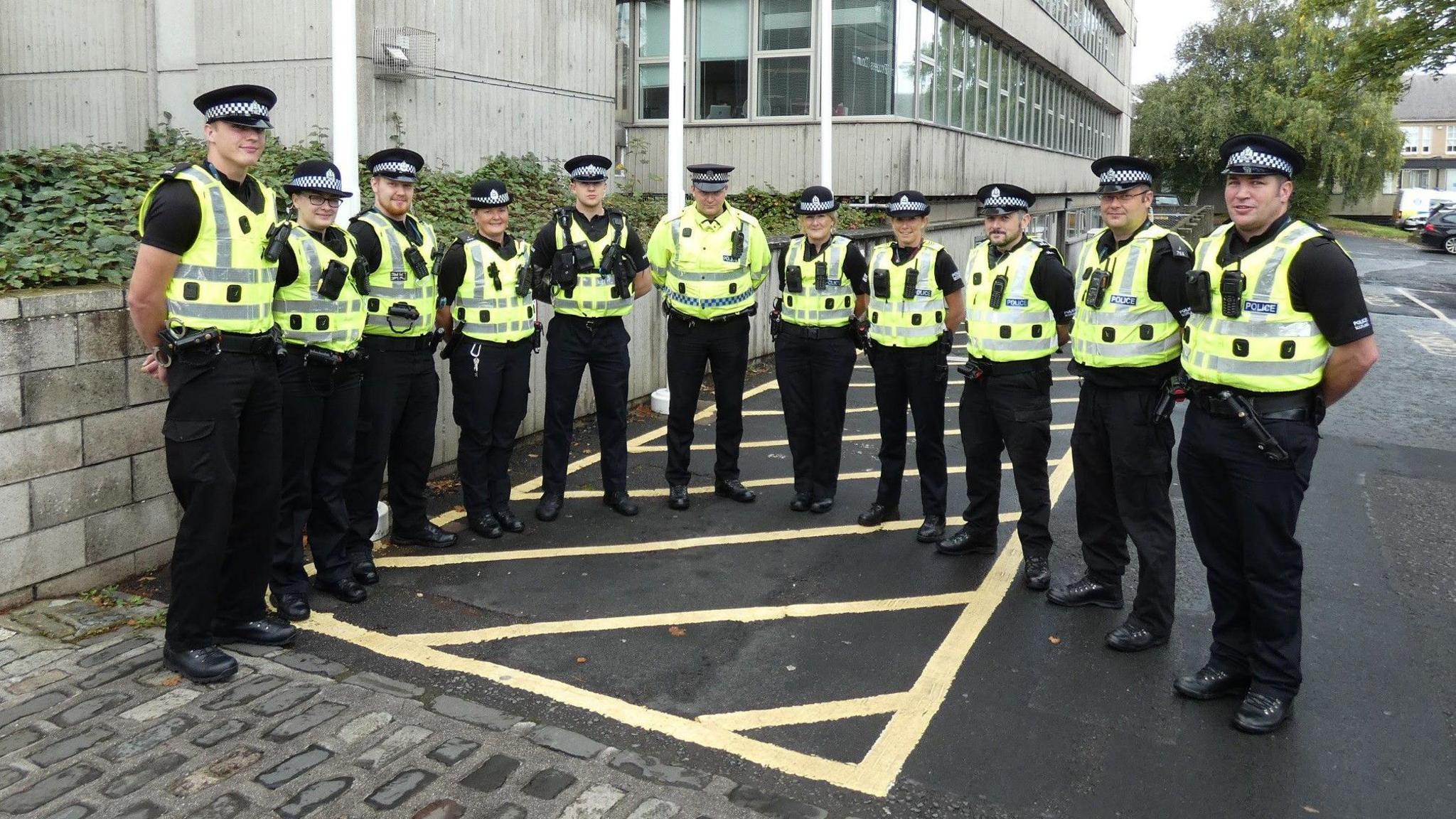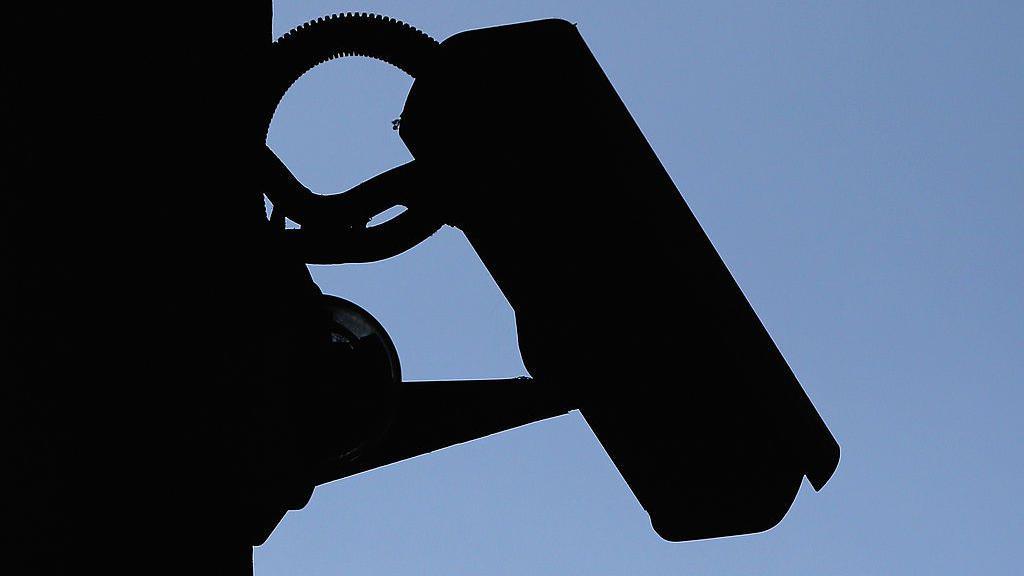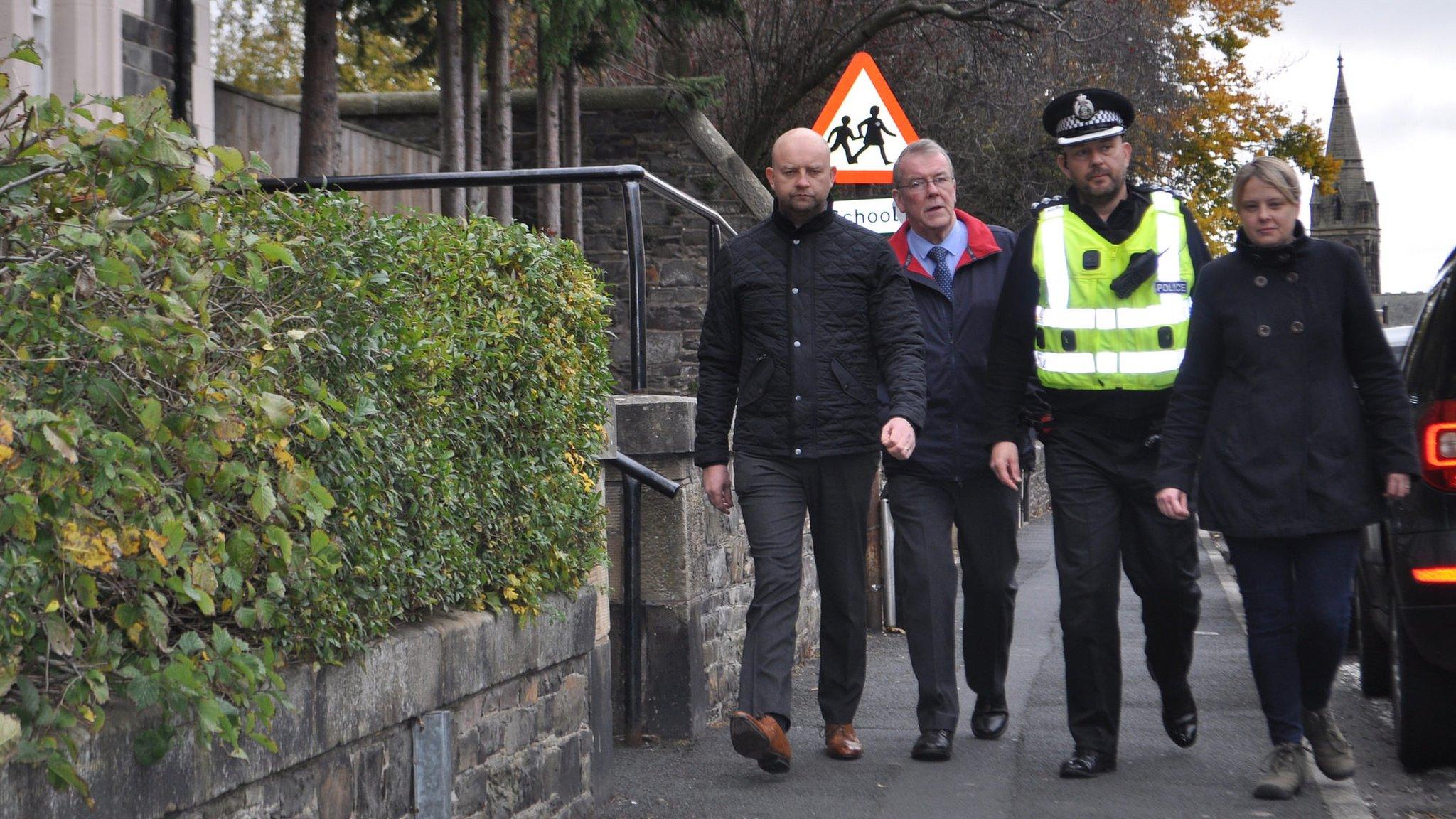'No negative consequences' after community police disband

The community action team in the Borders was set up in 2018 but disbanded earlier this year
- Published
Towns and villages across the Borders have seen no "negative consequences" following the demise of the region's community action team (CAT), councillors have been told.
The policing unit - designed to tackle "lower level" crime in the region and funded by Scottish Borders Council (SBC) - was set up in 2018 but disbanded in March this year as part of budget cuts.
There had been fears it could lead to an increase in anti-social behaviour but the local authority was told there was no evidence that was the case.
It heard that alternative resources - including new CCTV cameras - had been helping to keep communities safe.
Get in touch
What stories would you like BBC News to cover from the south of Scotland?
The CAT started out with one sergeant and six constables but that increased to twice that number for a time before reverting to its original level prior to being decommissioned on 31 March this year.
That prompted some concerns that there could be an upsurge in incidents but a report to the council said that had not been the case.
Council leader Euan Jardine said the needs of communities had changed over time.
"With all decision-making and all good governance you continue to evolve what you are doing," he said.
"It is really important that we keep engaging with our communities in terms of their community safety.
"Obviously we disbanded the CAT team, however we have got all these other mechanisms that we are putting into play now including CCTV."
During the same briefing it was revealed that 243 pieces of footage from the region's new CCTV cameras had already been supplied to Police Scotland for evidence gathering.
The new digital system, which replaced the outdated analogue cameras in September, covers town centres in Duns, Eyemouth, Galashiels, Hawick, Kelso, Melrose, and Peebles.
Consideration is also being given to increasing the number of mobile CCTV cameras being used in other towns and villages.
- Published15 November 2024

- Published6 February 2019
